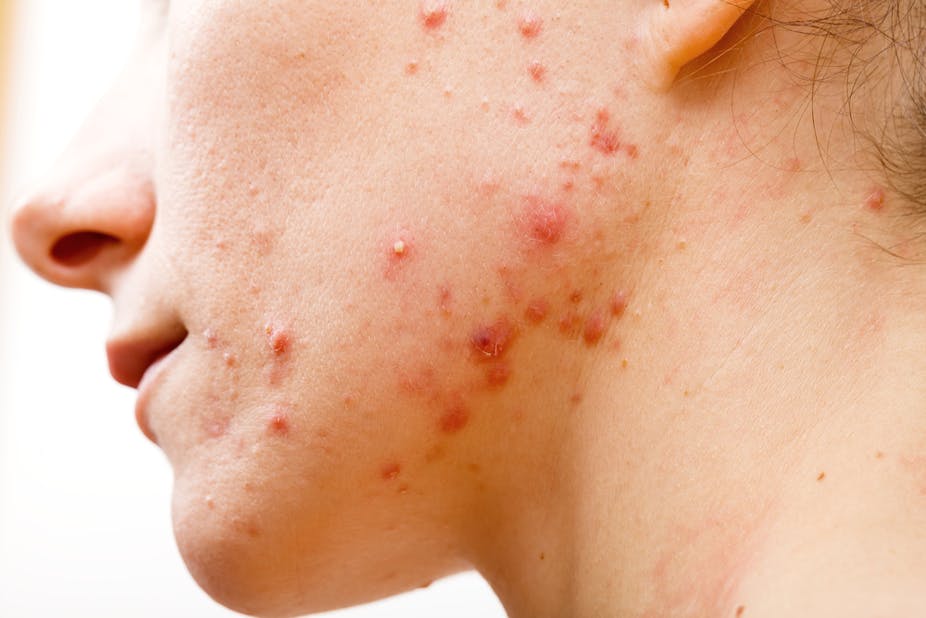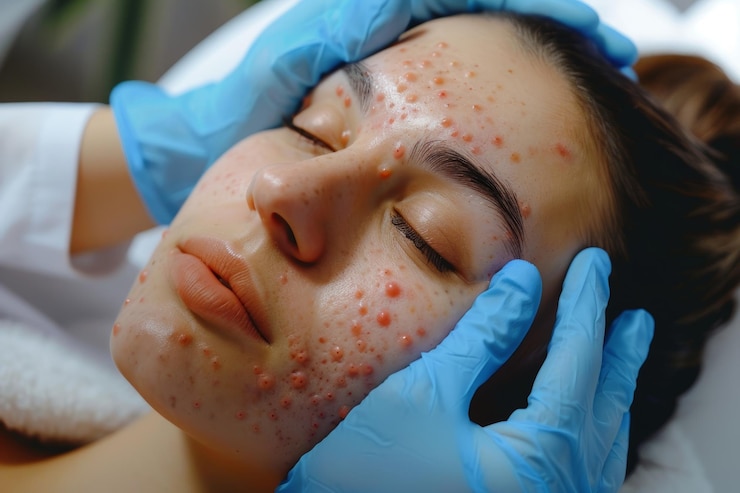Acne Treatment in Dubai is a prevalent skin condition that can affect individuals of all ages. Understanding its causes is essential for effective treatment. This guide explores the various factors contributing to acne and outlines the most effective treatments available.
Causes of Acne
Hormonal Changes
Hormonal fluctuations, particularly during puberty, menstruation, and pregnancy, can lead to increased oil production in the skin. Androgens, a type of hormone, stimulate the sebaceous glands, resulting in clogged pores and breakouts.
Genetics
Genetic predisposition plays a significant role in acne development. If parents experience acne, their children may be more likely to develop similar skin issues.

Diet
Certain dietary factors, such as high-glycemic foods and dairy products, have been linked to acne flare-ups. Foods that cause rapid spikes in blood sugar can lead to increased insulin levels, which may contribute to oil production.
Bacteria
The presence of Cutibacterium acnes (formerly Propionibacterium acnes) bacteria on the skin can lead to inflammation and the development of acne. When hair follicles become clogged, this bacteria can multiply, resulting in redness and swelling.
Stress
Stress can exacerbate acne by triggering hormonal changes that increase oil production. Stress management techniques may help reduce the severity of breakouts.
Skin Care Products
Certain skincare and cosmetic products can clog pores, particularly those that are heavy or oily. Non-comedogenic products are less likely to cause breakouts and are recommended for acne-prone skin.
Effective Treatments for Acne
Over-the-Counter Treatments
Benzoyl Peroxide
Benzoyl peroxide is an antibacterial agent that reduces acne-causing bacteria. It also helps to unclog pores. Available in various concentrations, it is effective for mild to moderate acne but can cause dryness and irritation.
Salicylic Acid
Salicylic acid is a beta hydroxy acid that penetrates pores to exfoliate dead skin cells and reduce inflammation. It is particularly useful for treating blackheads and whiteheads.
Retinoids
Over-the-counter retinoids, such as adapalene, help to promote cell turnover and prevent clogged pores. They are effective in reducing the severity of acne and improving skin texture.
Prescription Treatments
Topical Retinoids
Prescription-strength retinoids like tretinoin are more potent and can significantly improve acne. They help reduce both comedonal and inflammatory acne and improve skin texture over time.
Antibiotics
Topical or oral antibiotics, such as clindamycin and doxycycline, reduce bacteria and inflammation. They are often prescribed for moderate to severe acne and can be combined with other treatments.
Hormonal Therapies
For women, hormonal treatments like oral contraceptives can regulate hormones that trigger acne. These medications can be particularly effective for hormonal acne.
Advanced Treatments
Chemical Peels
Chemical peels involve applying a solution that exfoliates the skin, helping to clear clogged pores and reduce acne. They can be effective for both active acne and post-acne scarring.
Laser and Light Therapy
These therapies target acne-causing bacteria and reduce inflammation. They are effective for moderate to severe acne and require multiple sessions for optimal results.
Microneedling
Microneedling promotes collagen production and can improve the appearance of acne scars. This treatment involves using fine needles to create micro-injuries in the skin, enhancing overall skin texture.
Conclusion
Understanding the causes of acne is crucial for effective treatment. With various treatment options available, from over-the-counter products to advanced therapies, it is essential to find a personalized approach that works best for your skin. Consulting with a dermatologist can help in creating a tailored treatment plan to achieve clearer, healthier skin.





Comments